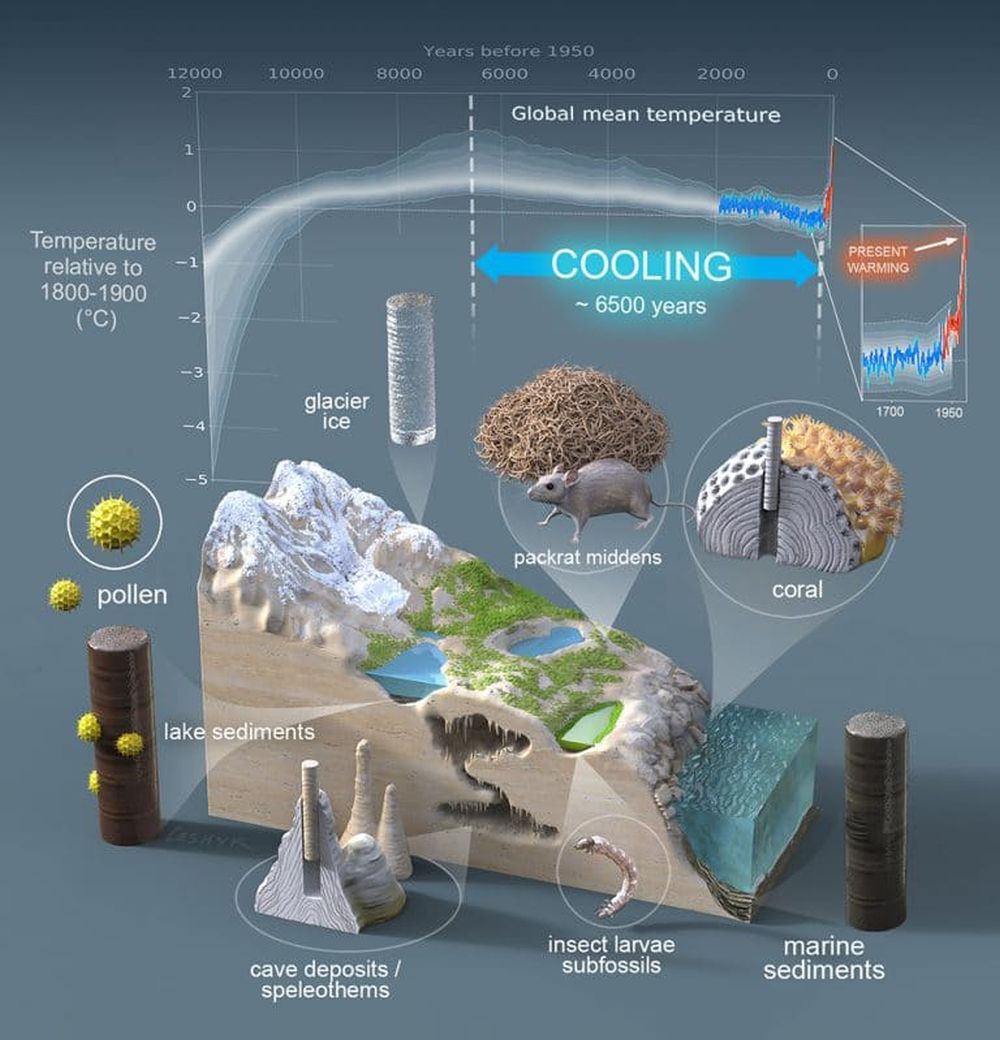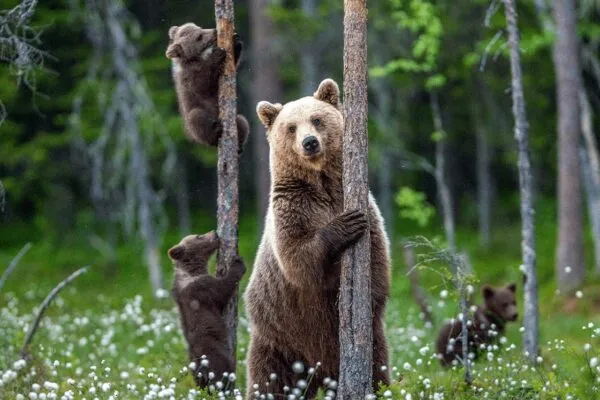Within 150 Years Global Warming has Undone 6,500 Years of Natural Cooling
Isn’t it ironic, how mankind creates a problem and then races against time to find a solution? Be it plastic pollution, climate change or global warming, all are human-caused, to which mankind has been trying desperately to find a potent solution. According to a recent study, within 150 years, global warming has undone over 6500 years of natural global cooling.
Published in Nature Research’s Scientific Data, the major study titled “Holocene global mean surface temperature, a multi-method reconstruction approach” has revealed that global warming has significantly negated the natural cooling course of over six millennia.
The findings show that the millennial-scale global cooling commenced over 6,500 years ago when the long-term average global temperature surpassed at around 0.7 degrees Celsius warmer than the mid-19th century. Since then, rushing greenhouse gas emissions have furthered the increase in global average temperatures that are now topping 1 degree Celsius above the mid-19th century.

According to a study, 150 years of global warming has undone 6500 years of cooling | Image: Victor O. Leshyk/Northern Arizona University
The study was led by four researchers from the Northern Arizona University’s School of Earth and Sustainability, with Regents’ professor Darrell Kaufman as lead author and associate professor Nicholas McKay as co-author.
The team collaborated with scientists from research institutions all across the world to recreate the global average temperature over the Holocene Epoch – the period that followed the Ice Age, beginning about 12,000 years ago.
Kaufman said,
Before global warming, there was global cooling. Previous work has shown convincingly that the world naturally and slowly cooled for at least 1,000 years prior to the middle of the 19th century, when the global average temperature reversed course along with the build-up of greenhouse gases.
He further added that this study, which is based on a major new assembling of earlier published paleoclimate data, united with new statistical evaluations, demonstrations more assuredly that the millennial-scale global cooling started roughly 6,500 years ago.
Earlier this year, an international group of 93 paleoclimate scientists from 23 countries worked on the set of paleoclimate data gathered for the past 12,000 years, compressing 1,319 data records based on samples taken from 679 sites worldwide. At each site, ecological, geochemical and biophysical evidence from both marine and terrestrial archives was analyzed to conclude past temperature changes.
The rate of cooling that followed the peak warmth was subtle, only around 0.1°C per 1,000 years. This cooling seems to be driven by slow cycles in the Earth’s orbit, which reduced the amount of summer sunlight in the Northern Hemisphere, culminating in the ‘Little Ice Age’ of recent centuries.
Said Erb, who analyzed the temperature reconstructions.
The global average temperature of the last decade was warmer than at any time during the current post-glacial period. According to McKay, who developed some of the statistical approaches to synthesize the data, the average temperatures of the past decade were likely cooler than what can be predicted about the rest of this century, which are expected to continue to surpass 1 degree Celsius above pre-industrial temperatures.
It is most probable that future climate will basically depend on the impact of human factors, especially the emission of greenhouse gases. However, the future climate will be influenced by natural factors as well, and it will be complex due to the natural inconsistency within the climate system.


